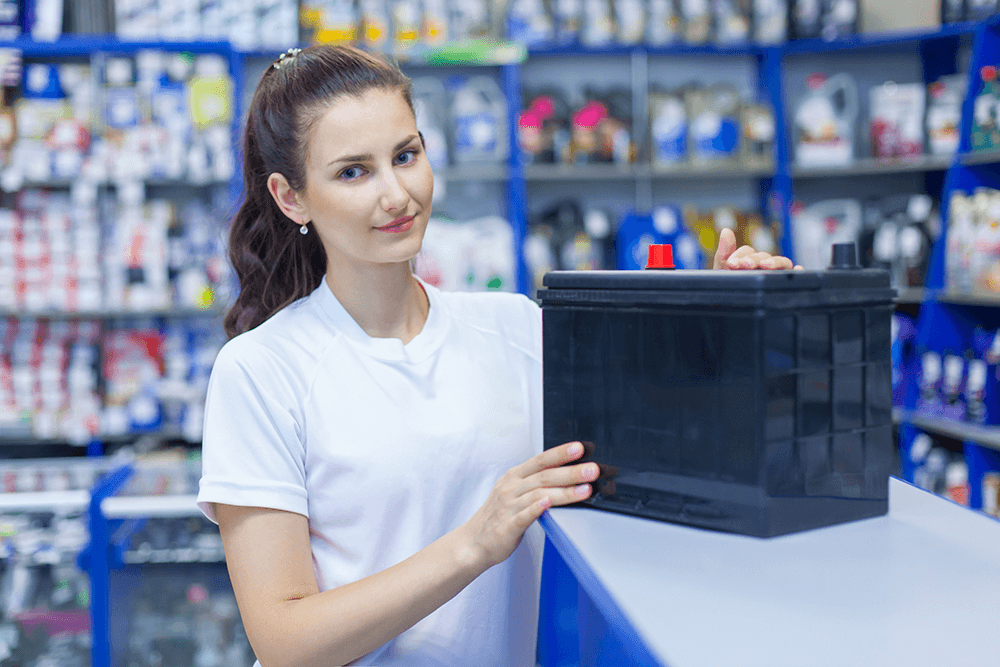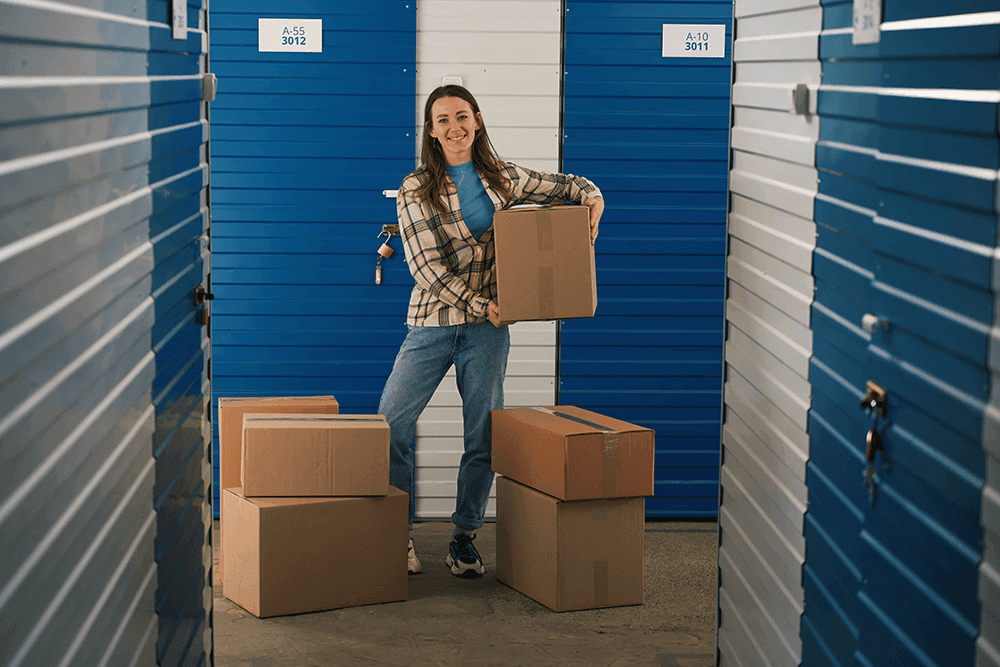
 Storage Tips
Storage TipsHow to Store Batteries for Long Term Storage
Household and vehicle batteries keep the world running. We depend on them to power everything from remote controls to the family car. Since they come at a premium, storing them for future use is preferable to tossing them out if you need to relocate for a season. Thankfully, it’s possible to keep your batteries in peak condition when you use the right storage methods for them.
When you store your batteries properly, you reduce their chance of developing corrosion, leakage, short circuits, and self-discharge. Whether you need to keep your batteries safe for a few days or a year in storage, using the correct methods will help you get the best use of them in the future. Check out these answers to some of the most frequently answered questions about battery storage.
Do Batteries Go Bad if They're Not Used?
Yes, batteries go bad if they’re not used. All batteries lose their charge as time passes no matter what you do. If you have a non-rechargeable alkaline battery, then it typically lasts between 5-10 years. Ni-MH (rechargeable) and lithium-ion batteries can last between 3-5 years when not used. Across the board, all batteries lose their charge faster when they are connected to a device or circuit.
Cars mostly use standard wet cell or absorbed glass mat (AGM) batteries, which both use lead-acid technology. AGM and wet cell batteries die in a matter of weeks when left inside an idle car. If they are new and unused, they will usually go bad in a year.
Can Batteries Touch While They Are Stored?
No, batteries should not touch when they are stored. When they get into contact with any metal object, including other battery ends, they will steadily lose their charge. In rare cases, batteries can also catch fire when they come into contact with other batteries and metals.
Also, when opposite battery ends are in contact with each other during storage, this can cause a short circuit, which leads to leaks. This means that throwing batteries haphazardly into a box can lead to a lot of unnecessary drainage since there is no way to keep their ends from touching.
Is it Safe to Store Batteries in the Fridge?
Yes, you want to store batteries in a cool, dry place. The perfect temperature to store batteries at is 59 degrees Fahrenheit so a refrigerator is a good place to store them. Make sure you have them in a separate package or container so there is no problems with cross contamination with the food stored in your fridge. When you want to use your batteries, make sure they they get up to room temperature.
Can You Store Batteries in a Plastic Bag?
No, it’s not advisable to store batteries in a plastic bag if they are loose or mixed with other battery types. Batteries should be stored in their original packaging, away from other metals, battery types, and chemicals. Ideally, you should choose a cool, dark place for storage too. Then, if you’d like to put your packaged batteries into a plastic bag, you can have peace of mind about avoiding any storage mishaps.
How Do You Store AA vs Car Batteries?
Household batteries like AA or AAA batteries are different from car batteries, therefore they require different storage methods. As previously mentioned, household batteries should be stored in their original packaging. If this isn't available, they can be placed in a box but organized with cardboard dividers to keep opposite ends from touching. Batteries of different types should be stored separately to prevent reactions and short circuits.
Car batteries need to be recharged more often or else the battery dies rather quickly. This is because they accumulate sulfide and short the lead plates. If you plan on keeping a battery inside a vehicle, you must drive the car every 2 weeks to keep the battery charged. If this isn’t possible, you need to store the battery connected to a trickle charger. In all honesty, it’s probably easier to buy a new car battery when you’re ready to install one in your vehicle and use it again. But if you’re feeling like you want to save a battery, the trickle charge method is possible.
Quick Tips for Storing Batteries in the Offseason
Long-term storage for batteries require special care. Here are some quick tips to follow.
- Store all batteries at room temperature: This means that you should keep them in a room in your house that remains at a stable temperature all year. If you plan on using a storage rental, you must use a climate-controlled unit. Using a climate-controlled unit also protects batteries from another hazard: moisture. Air conditioner keeps humidity away, which in turn keeps your batteries dry during storage.
- Always remove batteries from their devices. Otherwise, they will drain more quickly.
- Do not store rechargeable batteries in a battery charger.
- Store lithium batteries when they are between 30-50 percent capacity. Do not store them at a full charge because it actually decreases their shelf life.
- Don’t store new batteries with old batteries. This can create confusion when you retrieve batteries for future use. Matching a low battery with a fully charged battery can cause your device to drain the batteries more quickly.
- Store batteries out of the reach of children. Kids can be unpredictable and not know how to handle batteries safely.
Find Climate-Controlled Storage
Storage Rentals of America offers a variety of storage units to meet your specific needs. Whether you need to store batteries for a few weeks or months, we have flexible rental options to fit your timeline. Ask us about our climate-controlled units that will keep your batteries at room temperature so that you don’t have to worry about extreme temperatures ruining your valuable belongings.
We're Your Storage Solution!
Storage Rentals of America is your convenient self-storage solution. So come into our office or give our storage experts a call at 1-800-457-5678. Our call center is available 7 days a week and can help determine which storage unit size best fits your storage needs.



